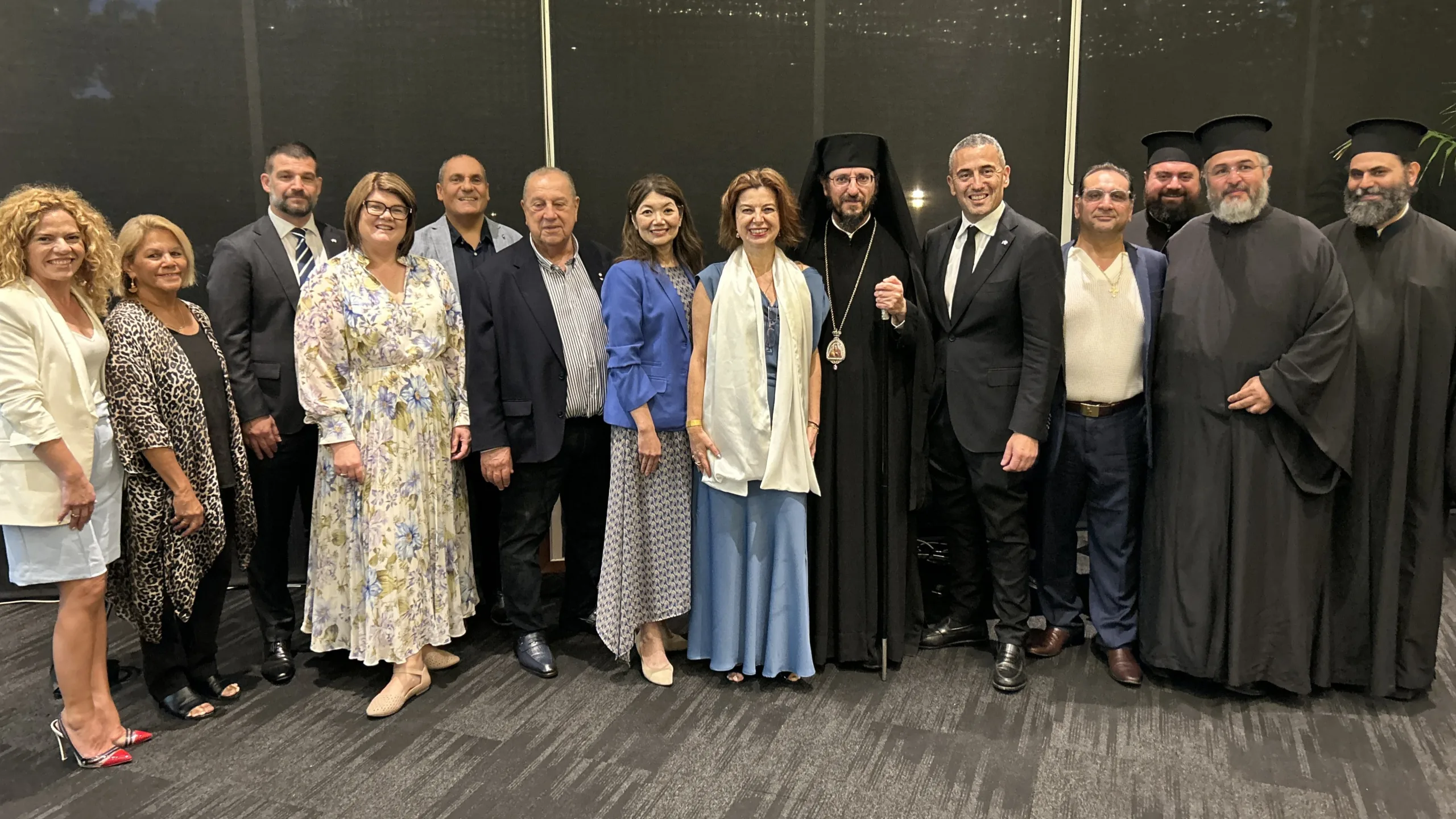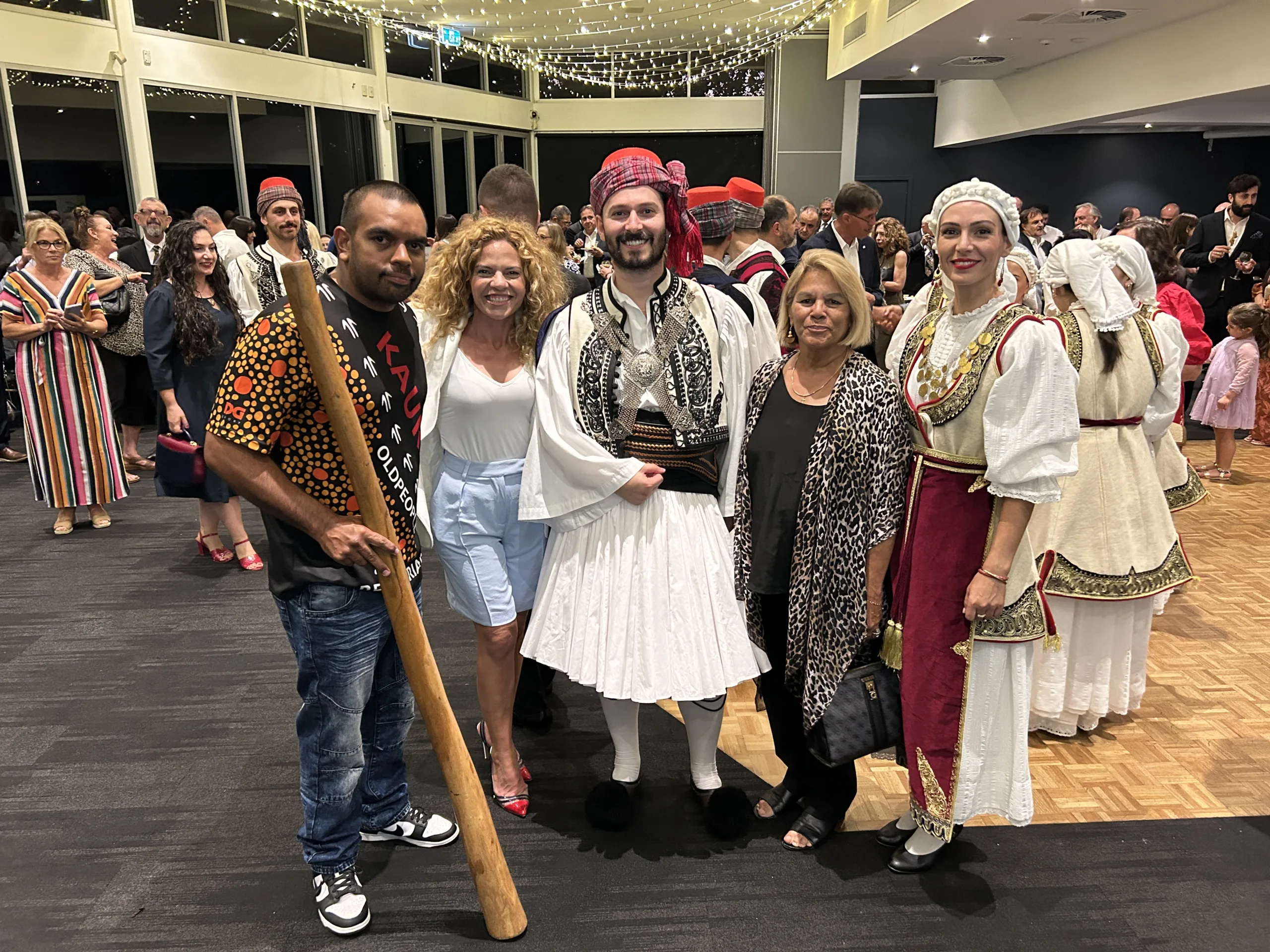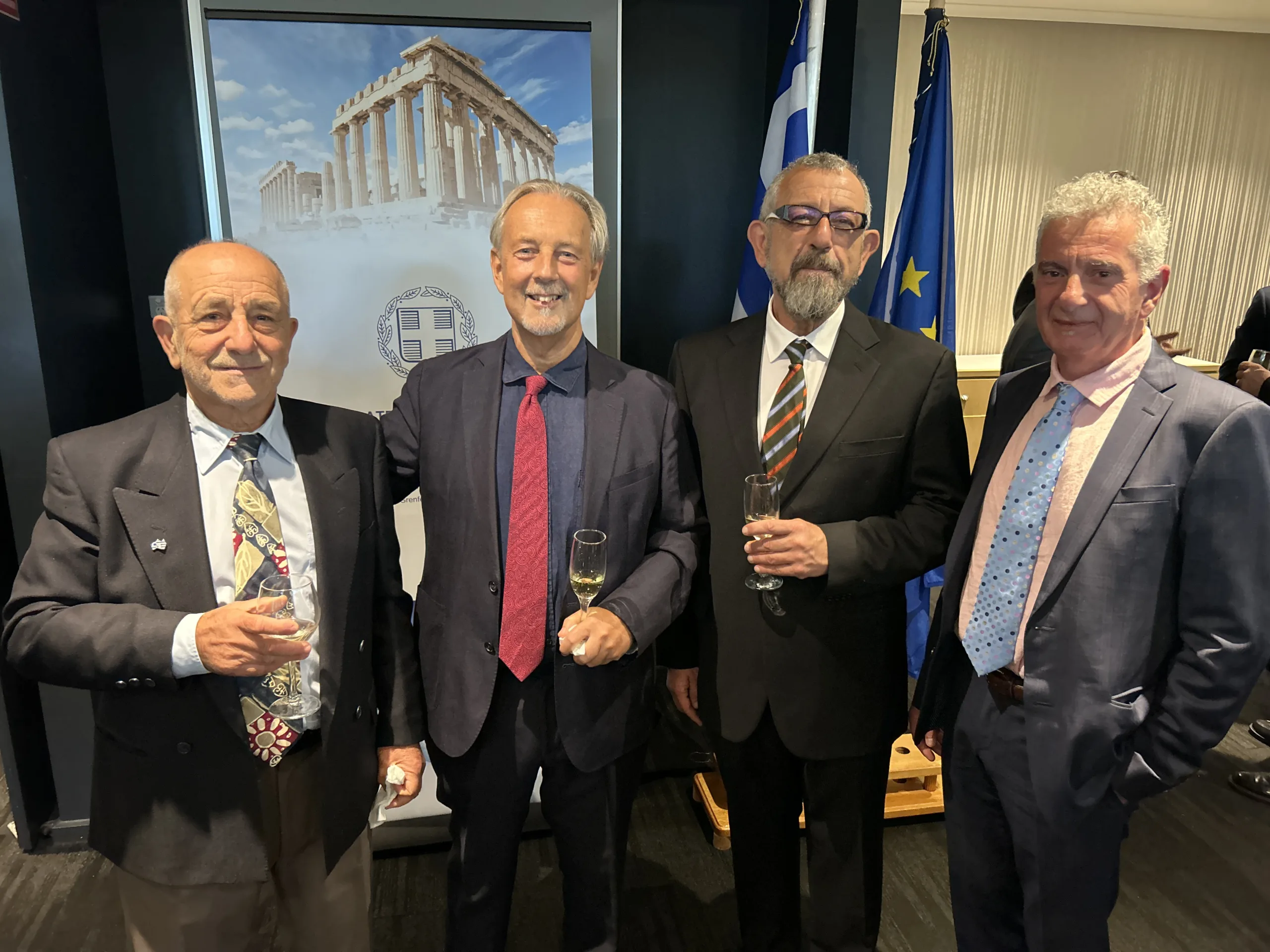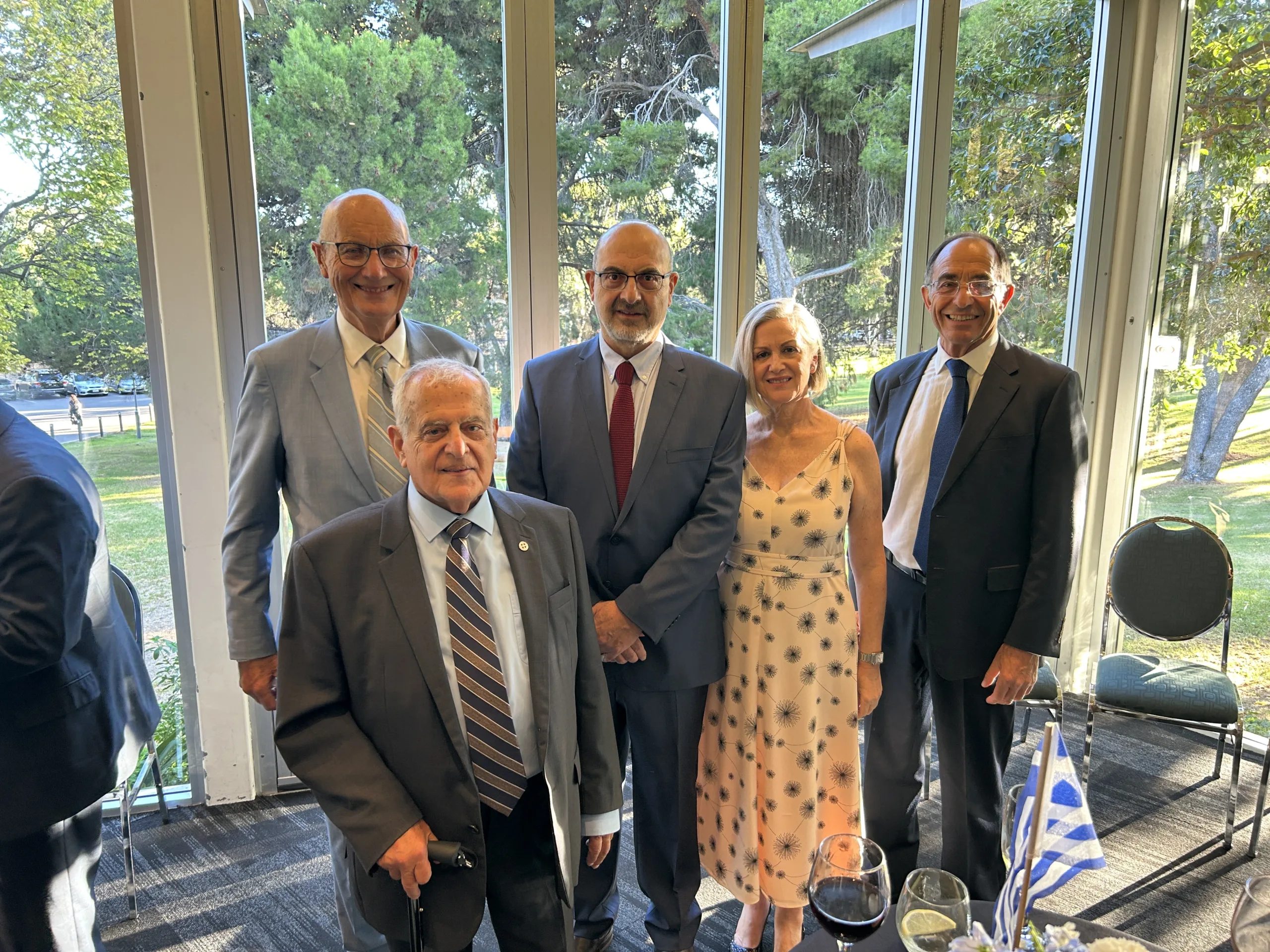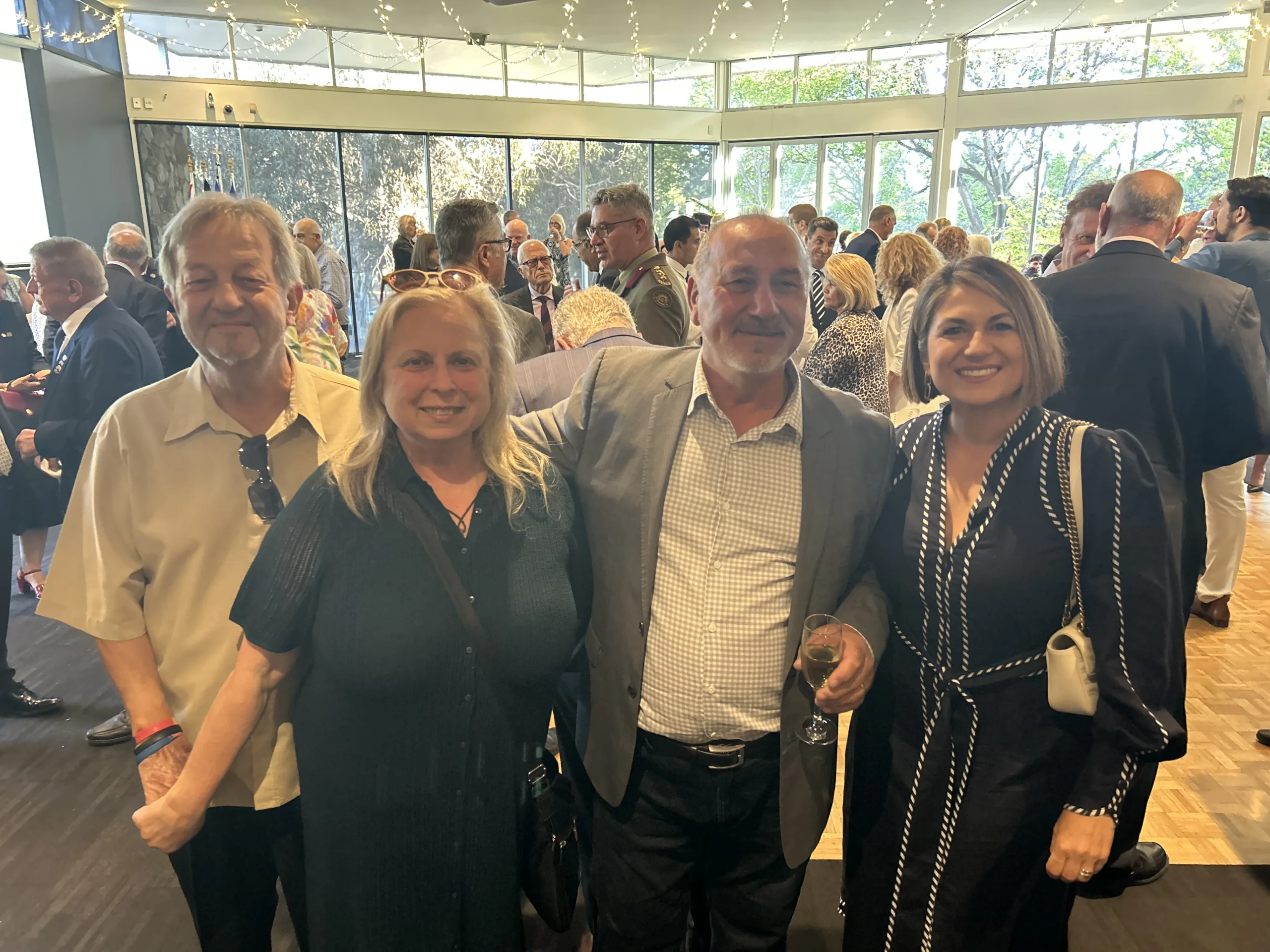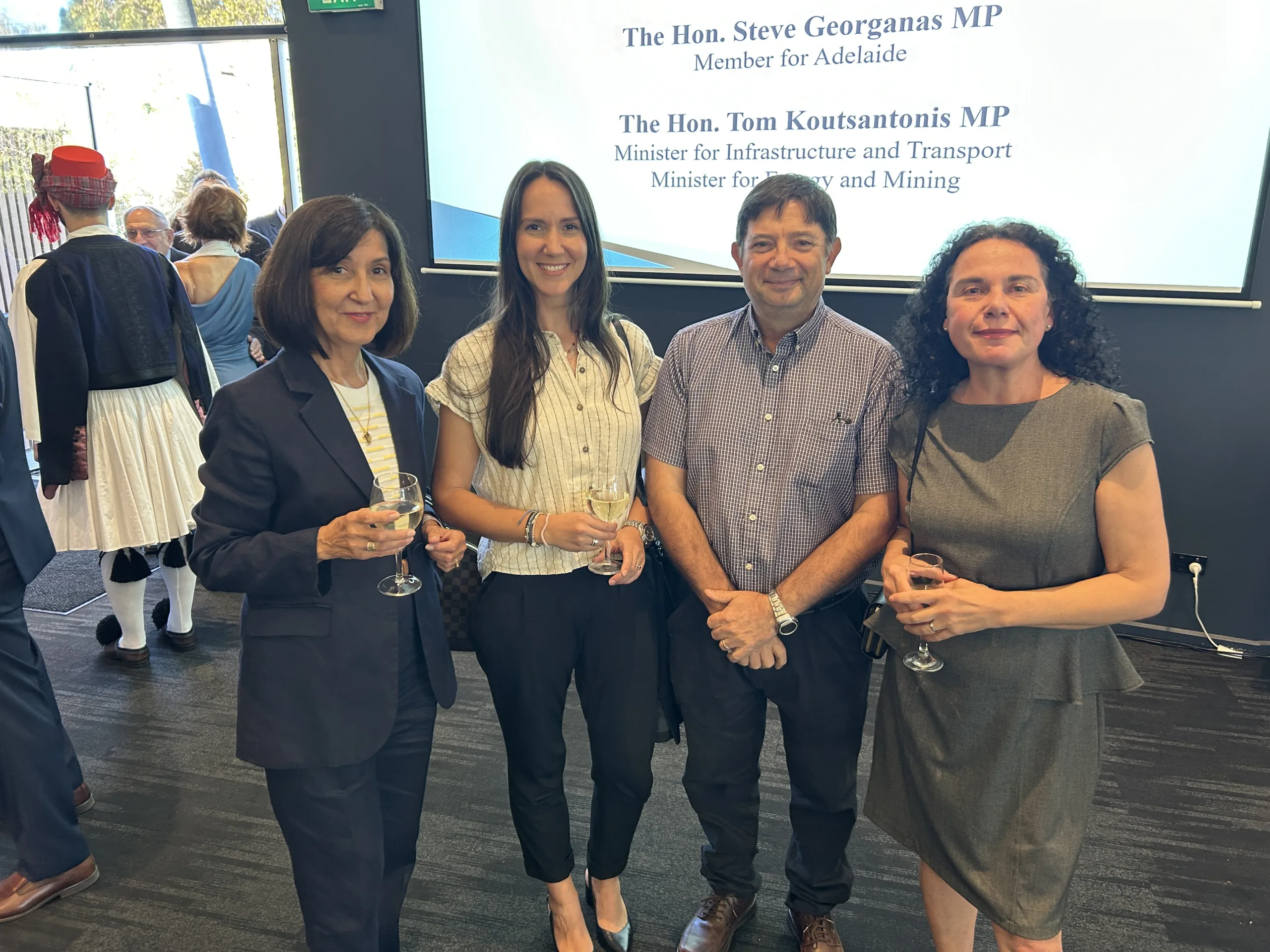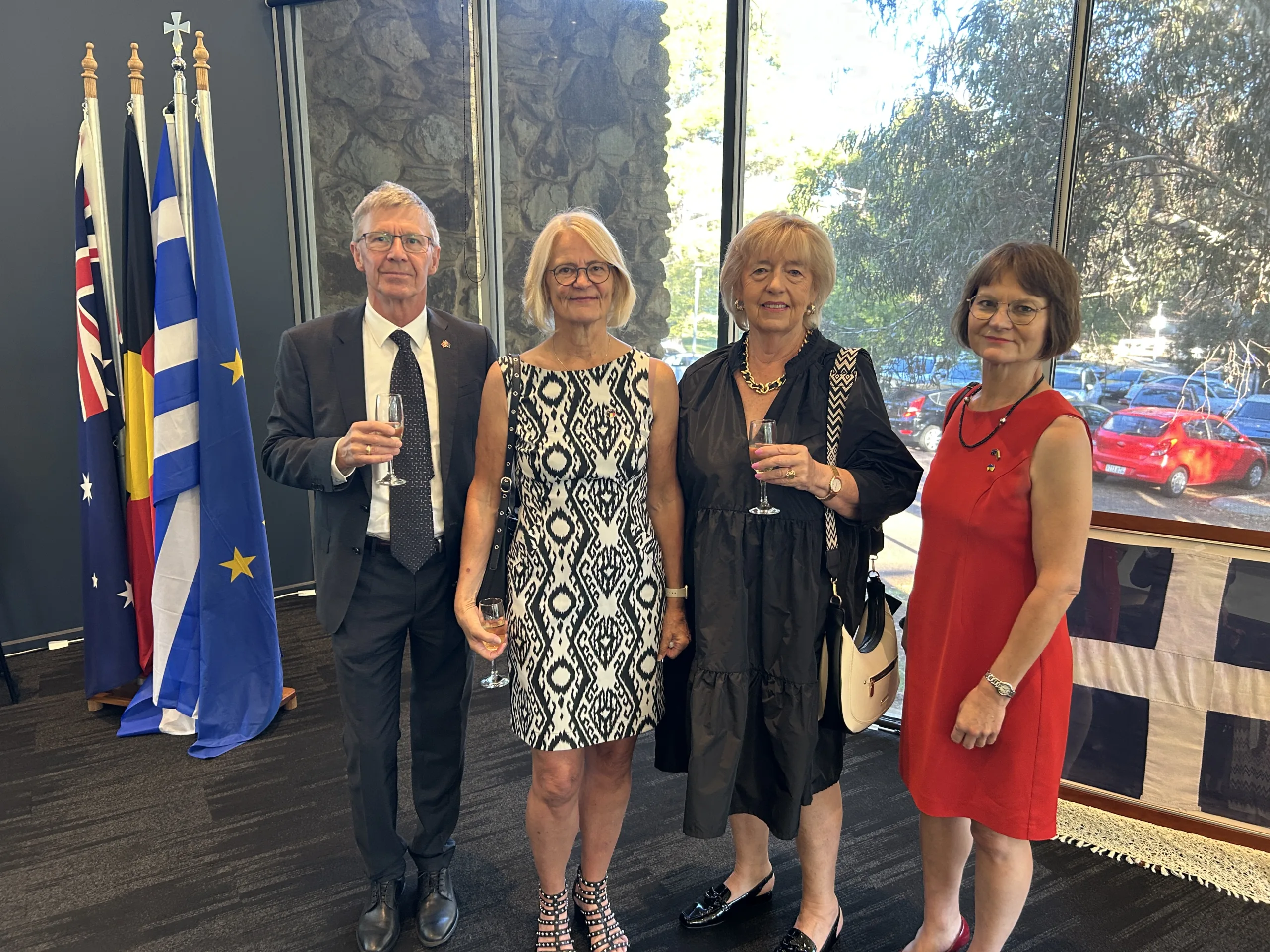On March 25, the Greek Consulate of South Australia hosted an evening of cultural pride and celebration as Greek community members from SA gathered to commemorate one of the most defining events in Greek history — the Greek War of Independence of 1821.
This official celebration brought together dignitaries, community leaders, and proud Hellenes to reflect, remember, and rejoice in the freedoms won by their ancestors.
Before speeches, the Choir of the Byzantine Music School of Australia in Adelaide performed the Greek and Australian national anthems, followed by the Ipermaho (Kontakion of the Mother of God, known as the Akathist Hymn).
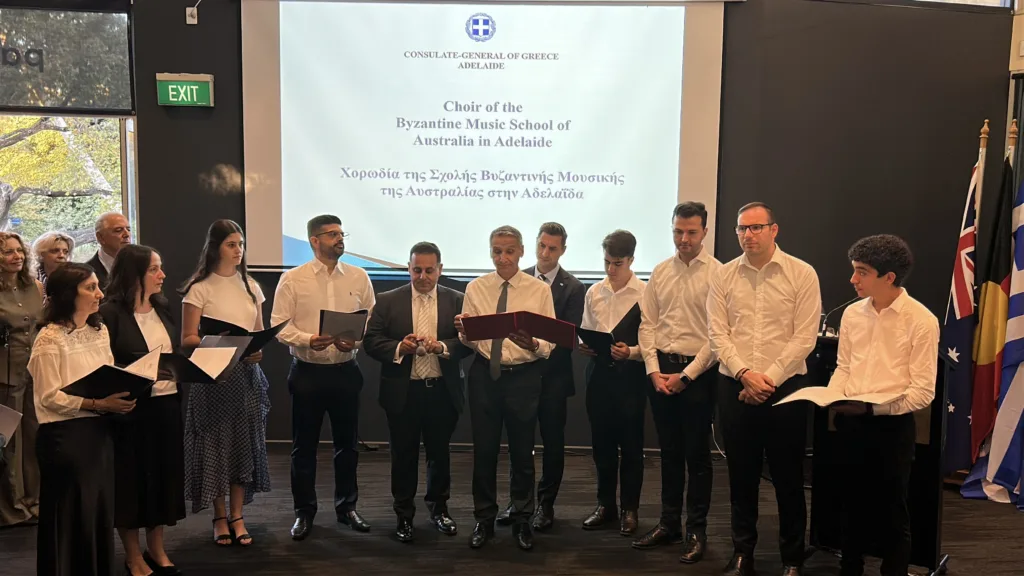
Representing the South Australian Government and SA Premier the Hon. Peter Malinauskas MP, The Hon. Tom Koutsantonis MP delivered an emotional and evocative address, weaving through centuries of Hellenic history and spirit. His speech not only acknowledged the political significance of the revolution, but also illuminated the deep cultural and spiritual resistance that endured long before 1821.
Mr Koutsantonis traced the fall of Constantinople through to the spark of revolution, painting a vivid picture of the resilience that followed centuries of loss.
“The storm begins, as all do, in tragedy,” he said, adding that when Constantinople, on May 29, 1453, was lost “it was not just a city that was lost. It was the final light of a thousand years of civilisation, a crossroads of Christianity, learning, and empire that was extinguished under the shadow of progress by the Ottomans.”
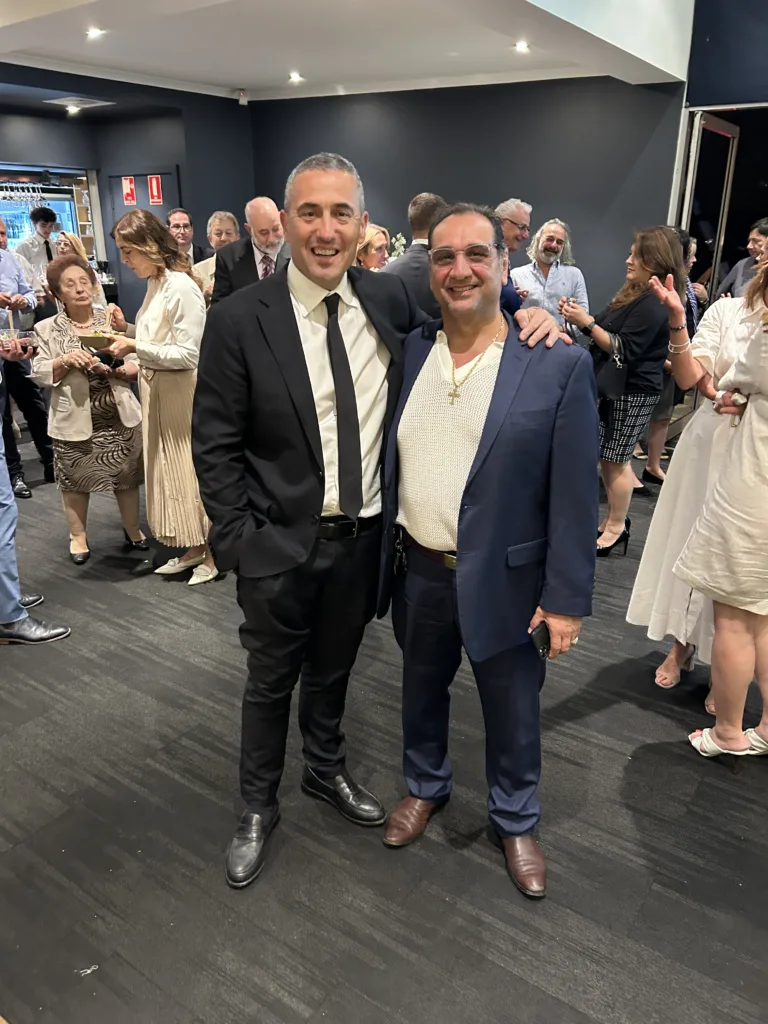
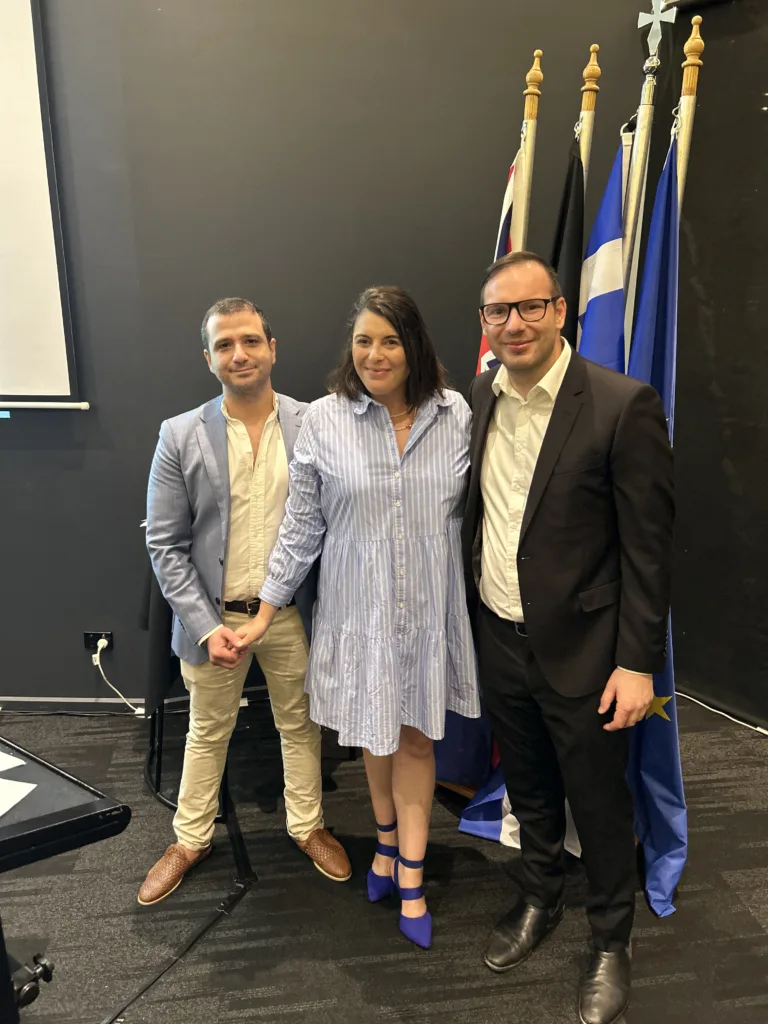
Yet, Mr Koutsantonis reminded the audience that while the walls of Constantinople fell, the Hellenic spirit remained intact, “from mountain villages to seaside ports, the people of Greece preserved our faith, our language, our identity—quietly and courageously.”
He highlighted the critical role played by the church in this quiet resistance: “Monasteries became places of learning—not only of theology, but of culture. The Church became a guardian of our national memory… [which] lived in the heart of every mother who taught her child silently the Greek alphabet.”
Mr Koutsantonis brought to light the early rumblings of revolution: “It wasn’t just launching a military campaign. It was igniting a sacred flame. One which had been tended and nurtured for 400 years.”
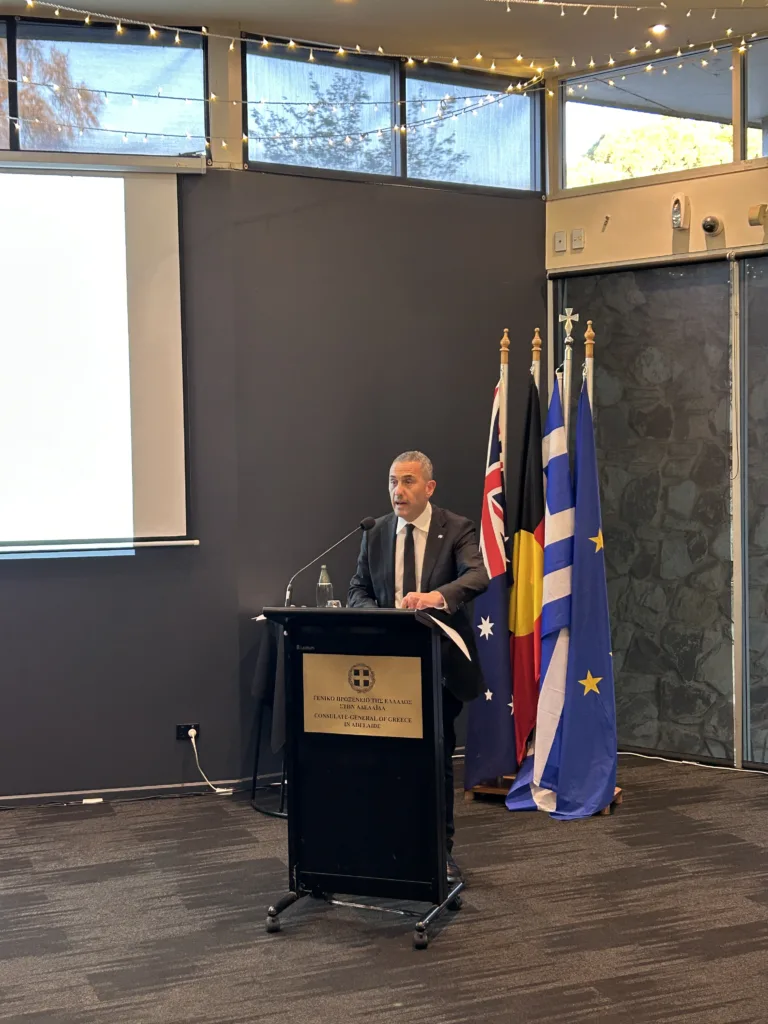
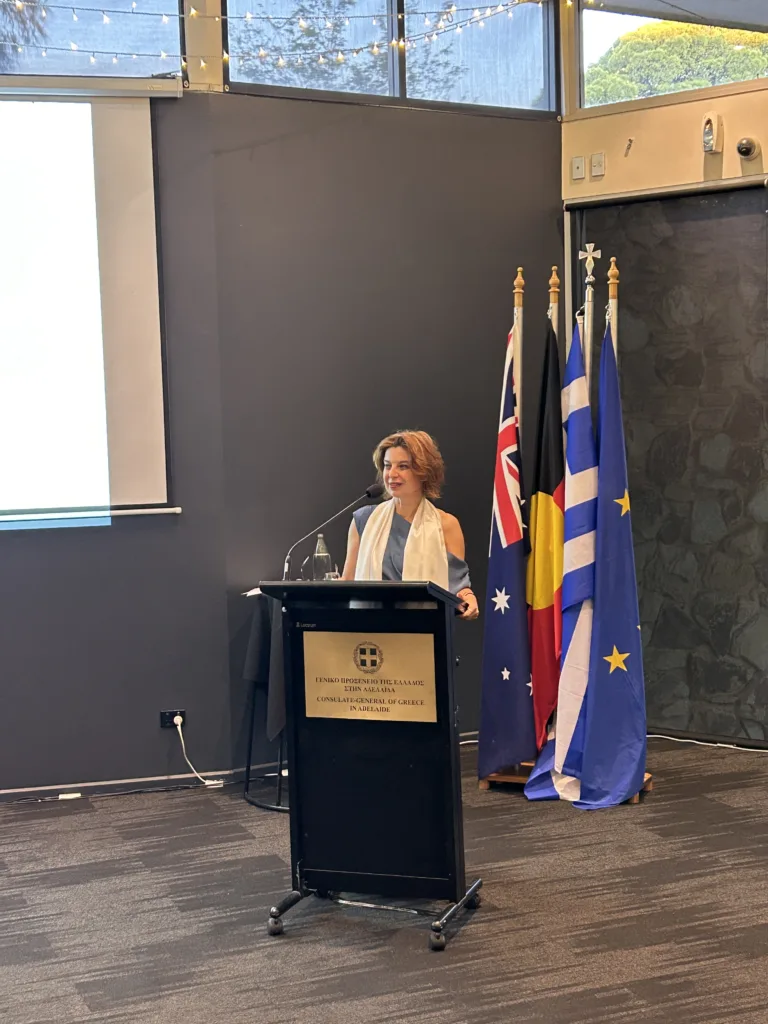
Dr Alexandra Theodoropoulou: ‘Today, we celebrate our Hellenism‘
Consul General of Greece in Adelaide, Dr Alexandra Theodoropoulou, followed with a reflective and lyrical address. Her words wove together Greece’s spiritual and cultural legacy with a call for the diaspora to uphold its heritage. Dr Theodoropoulou then drew a symbolic connection between the Revolution and the religious feast of the Annunciation, which shares the same date.
“March 25th coincides with the Annunciation — commemorating the Archangel Gabriel’s announcement to the Virgin Mary that she would conceive the Son of God, marking the incarnation… The Virgin Mary is the archetype of the eternal mother who gives birth and protects us all,” the Consul General said.
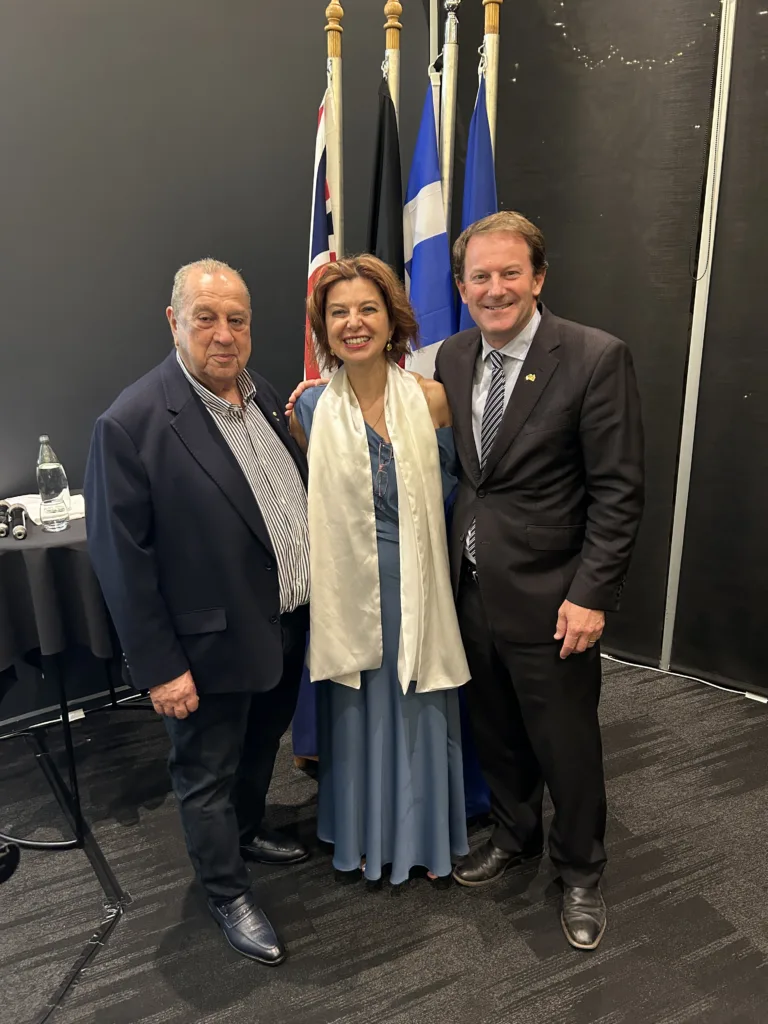
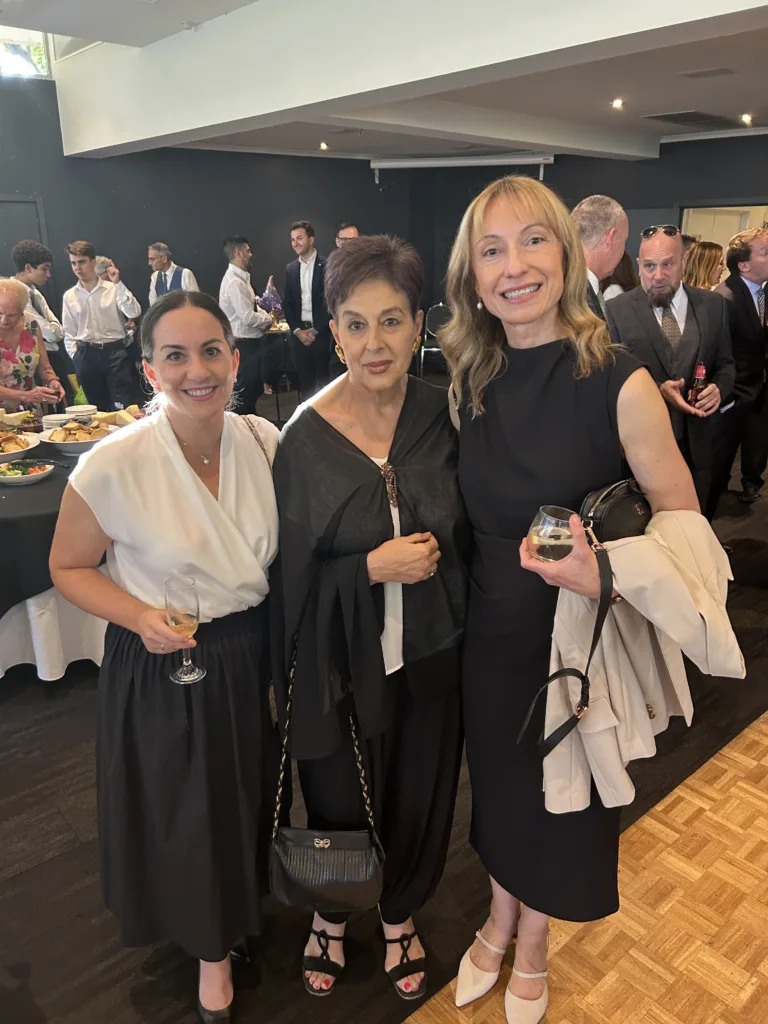
She emphasised the unifying force of Hellenism across borders, politics, and ideologies: “Today, we celebrate our Hellenism. Whatever our background, political or moral beliefs, we are blessed by a precious heritage that extends far beyond our small country… We are blessed to be part of a culture that generated knowledge and values that became universal.”
Reflecting on the sacrifices made during the Revolution, she honoured those who gave their lives for liberty: “The call for freedom was the only choice for all of them. The alternative was death — eleftheria i thanatos. When they heard ‘freedom or death,’ they heard it like a song.”
Her voice trembled as she evoked the courage of the women of Souli: “They were dancing in their dances — like the famous Horos tou Zalogou, the Dance of Zalongo. These women decided to turn towards the cliff’s edge and die with their infants and children, one after the other, dancing and singing this famous dance.”
She also placed modern Greece in its global context, underscoring its continuing leadership in international affairs: “This is why today, in a world of turmoil, Hellenism remains a model — through its membership in the European Union and its upcoming non-permanent seat on the UN Security Council for 2025–2026. Greece is committed to the defence of human rights and self-determination around the world, beginning, of course, with our sister country, Cyprus.”
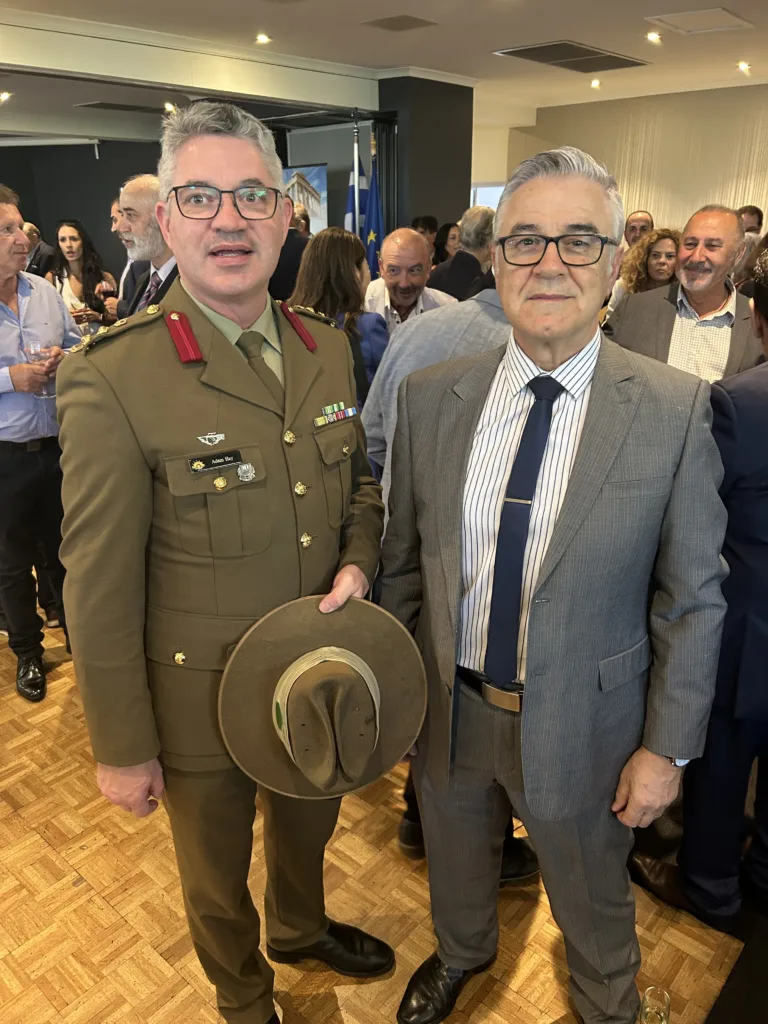
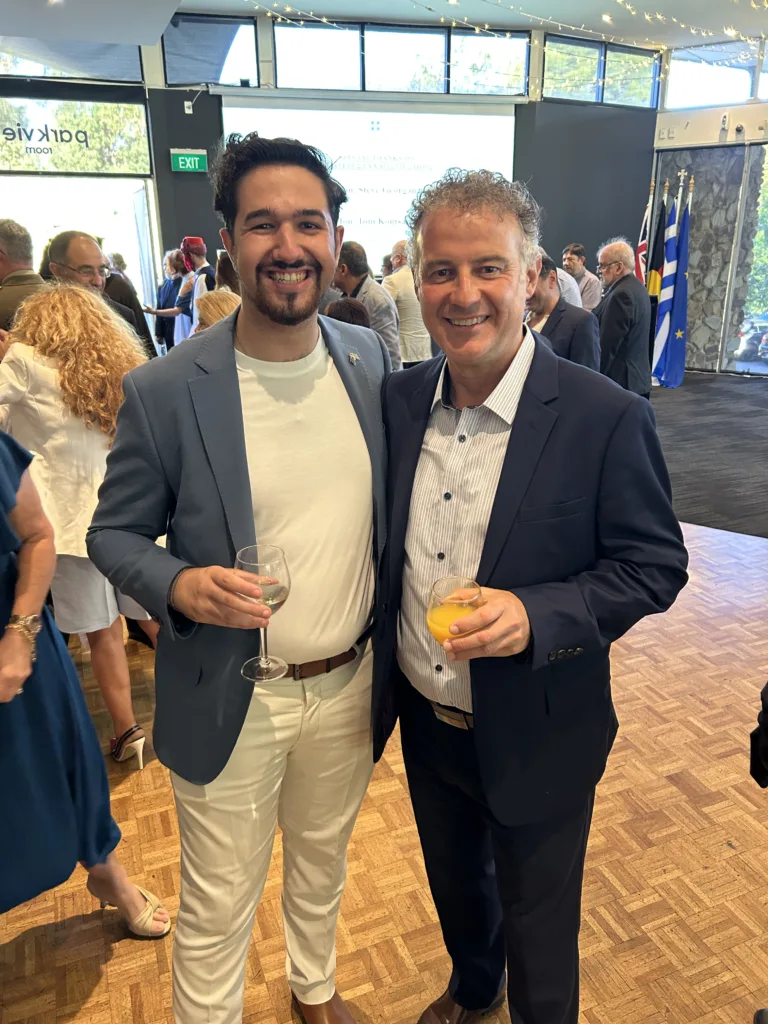
Carrying the flame of Hellenism forward
Following the speeches, the evening came alive with traditional Greek music and dancing, led by the Greek Orthodox Community of SA (GOCSA) Dance Academy. The room soon transformed into a vibrant circle of celebration, with community members joining hands in an expression of Greek heritage.
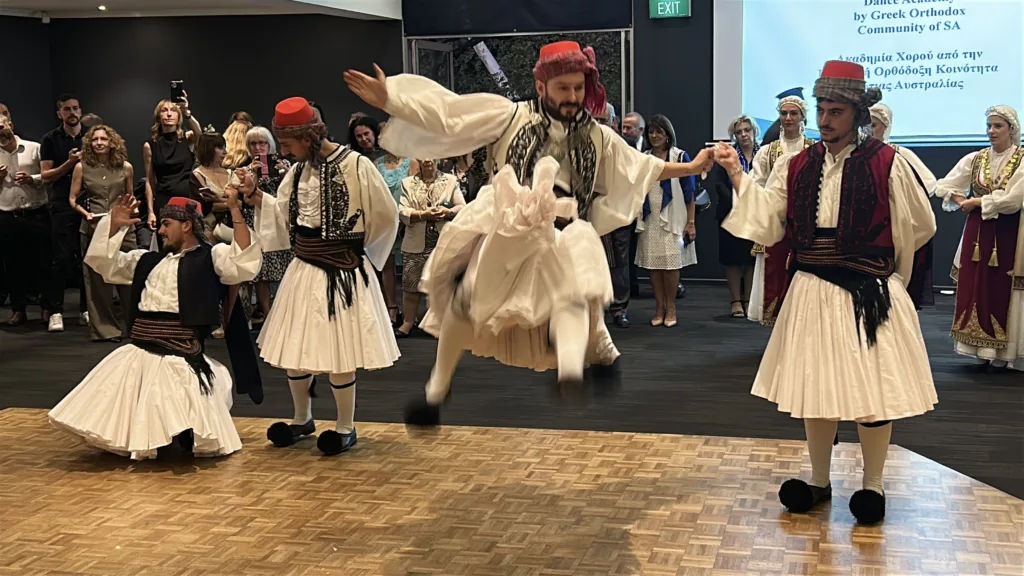
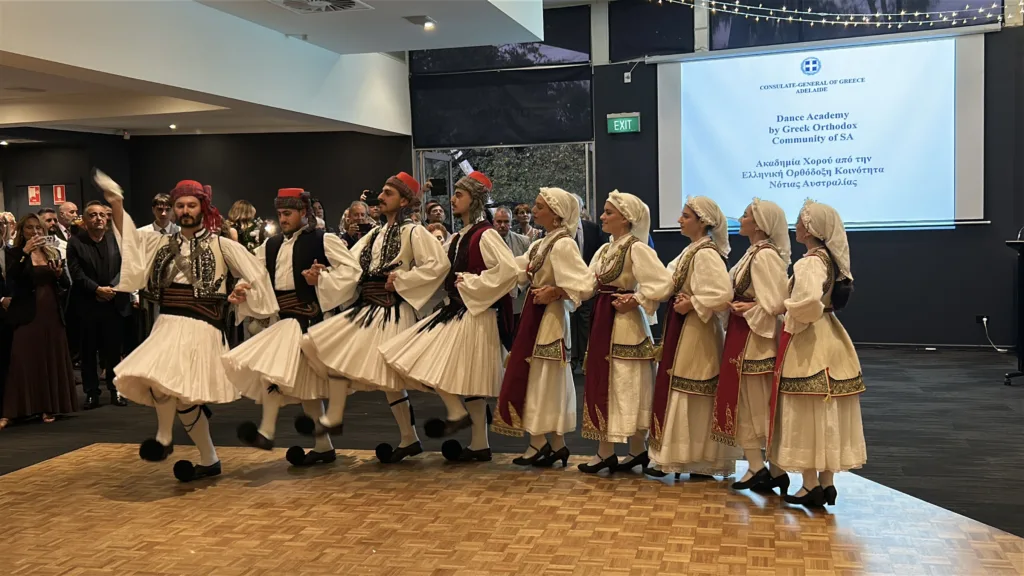
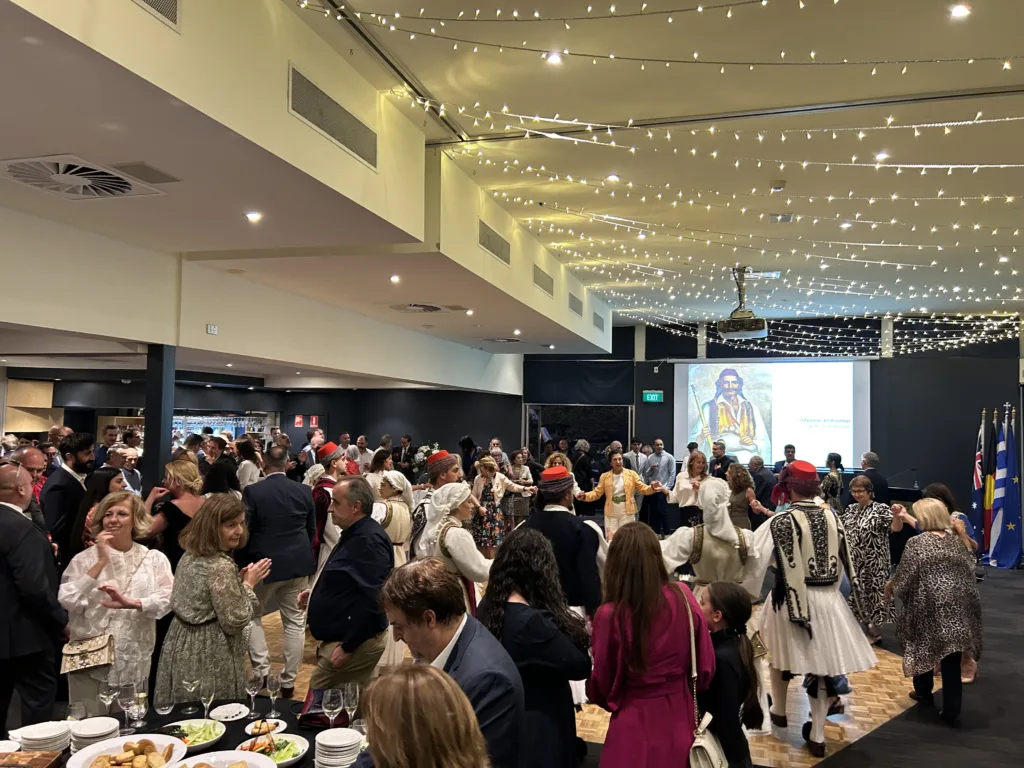
The 25th of March is a sacred date for Hellenes everywhere and is a powerful symbol of sacrifice, resilience, and enduring identity.
In Adelaide, this year’s celebration served as a vibrant bridge between past and future, between Greece and its global diaspora.
*All photos copyright The Greek Herald / Peter Tantalos.
